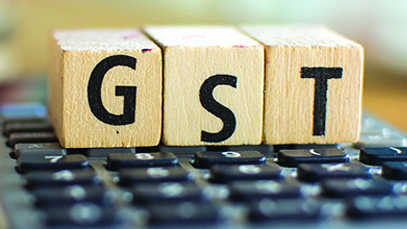Manav Mander
Tribune News Service
Ludhiana, June 29
On a call given by the Bhartiya Udyog Vyapar Mandal (BUVM), various trades in the city will remain shut tomorrow (June 30) against the implementation of goods and services tax (GST). Cloth merchants and furniture manufacturers have been on strike for the past three days. They will continue their agitation.
The BUVM is protesting the strict provisions of GST, which, it believes, can prove fatal for the growth of unorganised and small traders. The mandal has demanded that there should not be more than 15 per cent tax on any item.
Paul Khurana, chairman of the Punjab Furniture Association, said the traders had not yet overcome the losses caused by demonetisation and now GST is here to further make the things worse for them. “We are not against GST but all we are demanding is that the tax slab on furniture should be reduced. The present 28 per cent GST on wooden furniture is too high. We want the rate to be reduced to 12 per cent. The sale of furniture has come down to one-fourth and we are left with no other option but to lay off labour,” he said.
Jagdish Kumar from Mochpura Bazar said shawl traders had also decided to go on strike tomorrow. “There has never been any tax on shawls since it is handmade material. Artisans have been making these for centuries. This will only make the things worse for them as they will not be able to comply with the strict provisions of GST,” he said.
Cloth merchants are already up in arms against 5 per cent GST imposed on fabric. Artisans have meagre sources and are earning a living through their skill. But even they will now come under GST and will be required to file returns. The artisans with annual turnover less than Rs 20 lakh will not be covered under GST. The imposition of 5 per cent GST on textile job work has come as a blow to these artisans.
“It will be impossible to expect small craftsmen to register and file three monthly returns. If we don’t file returns, we will not get our claims. It’s going to be a difficult situation not only for artisans but also for wholesalers like us,” said Surjan Singh, a cloth wholesaler at Chaura Bazar.
Sanju Dhir, chairman of Ludhiana Woollen Manufacturers Association, said the traders were not against the implementation of GST but its harsh provisions. “One clause also includes imprisonment. We are no criminals that we will be sent to jail. One should be fined but we don’t understand the need for imprisonment. The government should have given a relaxation period of at least a year from these harsh provisions,” said Dhir.
Expert take
Gurmeet Singh, a cost accountant, said: “GST will unify at least 15 Central and state taxes into one. It aims at making India a market with common tax rates and procedures. It will remove the economic barriers, thus paving the way for an integrated economy at the national level. It is a destination-based tax on goods and services. Tax will accrue to the state or the Union Territory where consumption takes place. It is to be levied at all stages, right from manufacturing up to final consumption with credit of taxes paid at previous stages available as set-off. Only value addition will be taxed and the burden of tax is to be borne by the final consumer.”
Goods kept outside GST purview temporarily
1. Alcohol for human consumption
2. Five petroleum products, crude, motor spirit (petrol), high speed diesel, natural gas and aviation turbine fuel
3. Electricity
(the existing taxation system, i.e. vat and central excise, will continue in respect of these commodities)
Composition levy scheme
Small taxpayers with an aggregate turnover in a financial year up to Rs 75 lakh shall be eligible for composition levy. Under the scheme, a taxpayer shall pay tax as a percentage of his turnover during the year without the benefit of input tax credit.
Exemption threshold
Taxpayers with an aggregate turnover up to Rs 20 lakh are exempt from tax. Turnover shall be computed on an all-India basis. For north-eastern states and those in a special category, the threshold will be Rs 10 lakh. All taxpayers eligible for threshold exemption will have the option of paying tax with input tax credit benefits. Taxpayers making inter-state supplies or paying tax on reverse charge basis shall not be eligible for threshold exemption.
Unlock Exclusive Insights with The Tribune Premium
Take your experience further with Premium access.
Thought-provoking Opinions, Expert Analysis, In-depth Insights and other Member Only Benefits
Already a Member? Sign In Now










